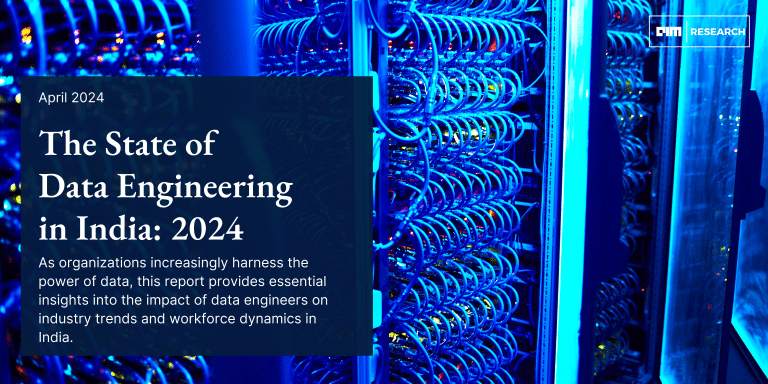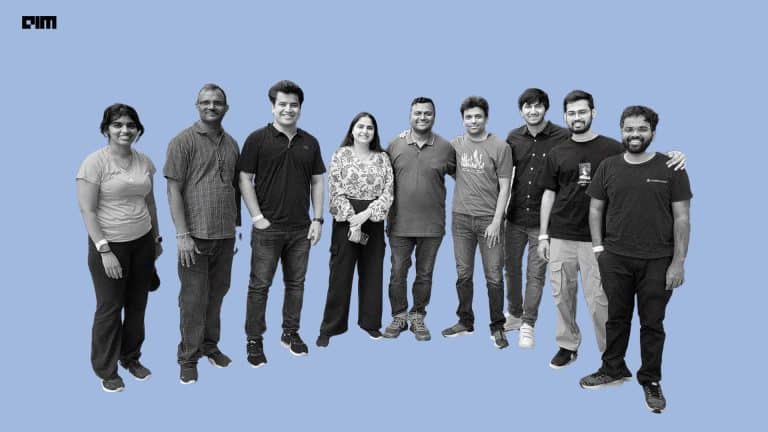|
Listen to this story
|
Gender equality in tech has always been the hot potato no one wants to deal with. Although companies world over wax eloquent about equality and diversity, gender minorities like women and non-binary individuals continue to face significant obstacles such as underrepresentation, underpayment, and discrimination.
AIM, over the past one month, has been reaching out to tech biggies like Accenture, SAP, Tech Mahindra, Nagarro, IBM, Intuit, Sabre, Walmart, TCS, and Syska, among many others, to understand the ground realities of gender inclusivity at the workplace. The results are baffling.
The survey aimed to determine the level of diversity and inclusivity at various companies. We included questions to gauge the gender ratio – whether or not there were queer employees and in what ratio – and also the number of differently-abled employees, if any. We also sought to find out if any discrimination against women, non-binary, and transpersons was observed during the recent layoffs. We tried to understand whether companies are doing enough to create an inclusive and diverse workplace. Lastly, the survey asked how the tech industry can work towards creating a more equitable work environment for all genders.
Most companies acknowledge that there is no set end goal when it comes to diversity and inclusion efforts, it is a continuous progress that they are striving for.
As per Prachi Rastogi, Diversity and Inclusion Leader, IBM Asia Pacific, to promote gender diversity, IBM India has achieved gender parity not just at the junior levels but also at managerial levels. “IBM India is making extensive efforts to make the onboarding of transgender employees smoother, including preparing infrastructure and sensitising employees on engaging with diverse personalities,” she told AIM.
Out of all the companies that we reached out to, only three were forthcoming in sharing their gender ratio. Nagarro has a male-to-female ratio of 3:1, but aims to have 25% of women in leadership positions by 2024 and 33% by 2026. The company also has a share of differently-abled individuals.
At Fiserv, women make up 41% of the global workforce and 27% of leadership roles. Fiserv’s Vice President and Expert Engineer of Data, Analytics and AI, Manisha Banthia, told AIM, “We hire a diverse talent, supporting women’s careers through upskilling, mentoring, networking, and other programs that foster a culture of inclusivity.”
“Leaders play a key role in driving diversity, equity, and inclusion (DEI) programs and supporting gender diversity, especially in the post-pandemic hybrid working world. It is important to teach the next generation to appreciate diversity and encourage individuals to be allies,” Shruti Tandon, Managing Director of People Enablement at Nagarro, told AIM.
Intuit has 33% of women in tech roles globally. Along similar lines, Sona Samad, Staff Engineer, Intuit, told AIM, “Intuit offers benefits, such as hormone replacement therapy and gender-affirming surgery reimbursement, as well as various support programs to address personal challenges of employees from the sexual-minority segment.”
In the engineering vertical, AIM Recruits found out that Accenture has a male-to-female ratio of 1.43: 1, with 43,504 males and 30,501 females. Walmart has a much higher ratio of 3.21: 1, with 3,469 males and only 1,079 females. SAP has 1,717 males and 799 females.
The Bitter Pill
The tech industry has been predominantly male, making it challenging for women to break through and negotiate higher salaries. According to the latest “Women in Tech” report by AIM Research, the tech industry in India has a total of 4.6 million employees, of which only 1.3 million (29%) are women. Globally, only 5.31% of women work in STEM fields, while 1.42% are non-binary and 1% are openly transgender as of 2022.
A recent study by IBM showed that 13% of women hold executive and board-level positions, with women making up 14% of board members. However, there has been a decline in the representation of women in senior leadership positions globally, with only 14% in Senior Vice President roles and 16% in Vice President roles. This is lower than the figures in 2019.
According to Statista, the proportion of women employees at the technical positions at major tech companies range from a mere 23% at Microsoft to 29% at Amazon. The Global Gender Gap Report states that the representation of women in the workforce is alarmingly low in certain sectors. For instance, only 14% of the cloud computing industry, 20% of engineering, and 32% of data and AI comprises of women.
The gender pay gap in the tech industry tends to widen with increasing years of experience, as women are underrepresented in key leadership positions. This results in less bargaining power for women and contributes to lower average and median salaries for female employees. Women in tech earn a median salary that is 17% lesser than their male counterparts in India.
AIM Research states that women hold the lowest share of Director-level positions, and only one in five CXO positions. Across different sectors, women hold only 8% of leadership roles. This disparity is partly due to the low participation of women in STEM fields, limiting their opportunities to enter the expanding technology industry.
And even if we choose to ignore the other parameters, reports show that a staggering 90% of the respondents experienced some form of discrimination and 100% have reported emotional, physical or sexual harassment at tech workplace. This means that every single woman and gender non-confirming person has experienced harassment at workplace at some point in their careers.
Gender inequality is a multi-layered issue that affects everyone. Each layer has unique manifestations that impact people differently, and it is crucial to acknowledge and comprehend them to address the issue effectively.
Credits: Designer Scarlett Musu & The Equality Institute
Queer Community at Stake
While we have supporting data on women in tech, there is a concerning lack of reliable data on the representation of LGBTQ+ members or non-binary individuals in the Indian tech. This lack of data makes it challenging to address the issues faced by this community in the industry. The main reason for individuals choosing to keep their sexual orientation or gender identity private at work is the fear of prejudice or discrimination, leading to difficulties for companies in accurately measuring their workforce diversity.
Pooja Jana, Assistant Vice President at Wells Fargo, had a smooth coming out at work but most don’t meet the same fate. “Organisations should have policies and benefits in place to support LGBTQ+ employees and empower the community. Wells Fargo offers various programs, sensitisation workshops and so on for the same”, Jana told AIM. Wells Fargo also happens to be a firm with a high share of women leaders in tech, as per research.
Despite the decriminalisation of homosexuality in India with the removal of Section 377 in 2018, the issue of the rights of sexual minorities remains sensitive in the country. While most employees prefer to keep their orientation private, some companies don’t gather information on LGBTQ+ identity because there is no legal requirement or pressure, and the absence of standard definitions and measurements makes data comparisons across companies or industries difficult.
Endless Search for Inclusivity
Though there are efforts by some companies to create more inclusive workplaces, many are still struggling to promote diversity and transparency. This was evidenced by the lack of participation in the survey. Although most companies cited confidentiality issues for not sharing the figures, the real reason could be their below-par diversity and inclusion efforts. Additionally, companies may have concerns about the potential backlash from stakeholders if their efforts are perceived as inadequate.
Another reason could be that these companies do not track or measure diversity and inclusion metrics, making it difficult for them to provide accurate data. Finally, some companies may not prioritise diversity and inclusion efforts, leading them to opt-out of such surveys.
The Road Ahead
Despite the facade of inclusivity, many women and other sexual minorities still face the blatant casual sexism. Unconscious bias and stereotyping continue to persist, impeding their growth in the workplace. And to add insult to injury, the dream of equal gender pay is still far.
Companies may be quick to monetise Women’s Day, just like they do with Pride Month, but we must not let these celebrations be reduced to a mere marketing ploy. Amidst the sea of iconic women’s leadership stories that flooded our feeds yesterday, it’s important to not let them distract us from the harsh reality.



















































































